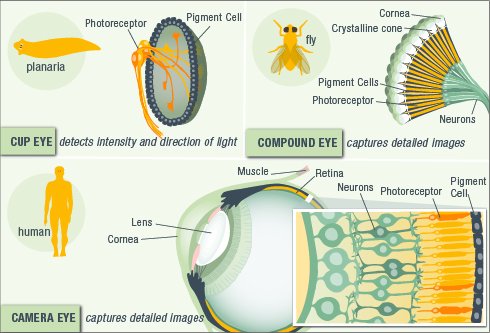Heaven and Earth are impartial
"Hatred, which could destroy so much, never failed to destroy the man who hated, and this was an immutable law" -James Baldwin.
Heaven and Earth are impartial
No one has really explained how you get rational organization and mathmatical precision out of randomness and nothingness. That's the 64 thousand dollar question"1) a. What caused the Big Bang to happen? How exactly does matter and energy spring into existence from nothing?"
Presumption it was caused.
We don't have to explain it.No one has really explained how you get rational organization and mathmatical precision out of randomness and nothingness. That's the 64 thousand dollar wirstu6
I accept your surrender"Hatred, which could destroy so much, never failed to destroy the man who hated, and this was an immutable law" -James Baldwin.
No one has really explained how you get rational organization and mathmatical precision out of randomness and nothingness. That's the 64 thousand dollar wirstu6
We don't have to explain anything. Probably 98 percent of people don't give a crap about dark energyWe don't have to explain it.
I accept your surrender
Not what I meant. You presume there is an explanation and cause.We don't have to explain anything. Probably 98 percent of people don't give a crap about dark energy
We don't have to explain anything.
Probably 98 percent of people don't give a crap about dark energy
That's precisely what it is.I don't think the scientists of an atheist disposition ignore fine tuning. They just can't deal with metaphysics, and attempt to come up with a material explanation. Some of them think the mathmatical constants are not actually constant - they take different values in different parts of the universe or multiverse - and we just happen to live in the part where the mathmatical properties are just right to support complex matter and life.
I always had a vague impression this was an ad hoc solution that was really just sweeping fine tuning under the rug.
Im "imagining " what I'm seeing? Don't believe my lying eyes huh? I think you're a perfect example of what Cypress was talking about.Ummm, actually NO ONE can. You just imagine you are seeing design because you see complexity. Complexity can and does arise in natural non-living systems all the time.
QED. You think chemistry is random. Your statement here says so. It isn't.
And saying "God did it" is a "real" answer???
Im "imagining " what I'm seeing? Don't believe my lying eyes huh? I think you're a perfect example of what Cypress was talking about.
If I never saw a watch but found one on the street id be an idiot to think all the pieces just fell into place by chance to make the watch. This is like the multiverse theory a poor attempt to explain away inconvenient facts.No, I'm saying that NO ONE can determine design in nature unless one can have a comparative version of that thing which was designed.
What you are probably ACTUALLY seeing is the complexity that develops over millions upon millions of years of change and optimization.
If there's a "designer" he/she/it seems to be of limited competence on some things. There cases where biological systems are suboptimal.
But that's the whole point: you can't really differentiate between a "designed" platypus and one that developed over millions of years of evolution.
This is where the whole "chemistry is not wholly random" bit comes in.
If I never saw a watch but found one on the street id be an idiot to think all the pieces just fell into place by chance to make the watch. This is like the multiverse theory a poor attempt to explain away inconvenient facts.


Right and it wasnt random or chance. You don't need to judge against anything else.That's because you know how a watch is put together.
Take a look at the development of the eye as an example.


This happened over hundreds of millions if not nearly a billion years and it makes very good sense. It is how something complex like a human eye can arise from simple structures over time.
Right and it wasnt random or chance. You don't need to judge against anything else.
Attaching the word "naturally" is meaningless but show me.If I show you a step-by-step illustration of the development of a complex system that forms naturally I would think that would give one pause.
Attaching the word "naturally" is meaningless but show me.
Oh I see you in think evolution means God didnt create it. Eyes dont create themselves do they?The eyes I showed you are one example. The simple to the complex. Are you of the opinion that God designed many different eyes over the space of millions of years? Why design all the eyes at one time? Why does it LOOK for all the world like a steady evolution?
Oh I see you in think evolution means God didnt create it. Eyes dont create themselves do they?
